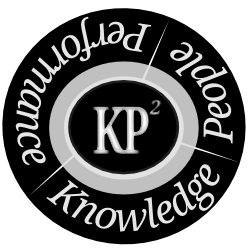Those of you who have been frequent visitors to my blog will have noticed that I take an active interest in social network analysis. I’ve prepared an overview of summer schools previously and written about my experiences at the Greenwich Summer School on Social Network Analysis, for example. At my home institution, the German Graduate School of Management and Law, we have recently put on a new series of seminars called ‘Methods in Business Research’. For the next seminar, we’re proud to have Steve Borgatti of the University of Kentucky, who is, without doubt, one of the most accomplished SNA scholars in the field of management. The seminar with Steve will take place from April 9-11, 2015 at GGS in Heilbronn, Germany. Below you can find more information about the content of the seminar and how to register. Continue reading SNA Workshop with Steve Borgatti @GGS in Heilbronn, Germany
Tag: workshop
Reflections on the #AOM2011
I just got back from my first Academy of Management Conference. The AOM Conference is the largest annual gathering of management scholars in the world. This year, it was attended by roughly 10,000 people from around the world and it took place in San Antonio, TX, USA. At the conference there are a number of panels, symposia, workshops and special programs for doctoral students. Doubtlessly, I was privileged to go.
I thought I’ll give a quick overview of what it was like, followed by blog posts on the doctoral workshop I attended, outstanding events & people as well as tips for getting research published. In order to find out more, check out the conversations around the meeting by having a look at the Twitter Hashtag #AOM2011.
Going through the program beforehand, I recognized a number of names that I had come across in my research. The AOM Conference surely is a great chance to put faces to the articles one is normally reading. As mentioned above, there were different session formats, each serving a particular purpose. The most powerful type of event, to my mind, are the professional development workshops. I attended such a PhD workshop by the AOM Division on Organizational Change and Development and another one for new doctoral students. Furthermore, I went to a Symposium on Dynamic Capabilities, for example, which constitutes a central topic of my doctoral program. This gave me a chance to hear the dicussions scholars are currently having. Their talks usually started by summarizing the literature in their particular fields and then they went right into the controversies. Roundtable discussions were useful to get a feel for the questions other scholars are likely to ask in response to particular papers or studies which are in the process of being published. One such Discussion Session was on Relationships, another component of my PhD program. Last but not least there are the socials, of course, which took place at numerous locations around the city. You can tell networking is an essential part of the event and much room is given for such activities. There is even an AOM Party Account on Twitter and a Google Calendar published for this purpose. My personal favorite was Monday night’s reception on the Tower of the Americas. All in all, the AOM Conference is great value for money.
I’ll close this post with a quote from Bill Pasmore, who’s the editor of the journal Research in Organizational Change and Development and who was also part of the above mentioned workshop: “You tell us where to go, because you are the future of change!” In this sense, it was inspiring to see the big shots in the management field while at the same time we were introduced to the academic profession and made aware of the fact that it is our research that will drive the discipline and will be published 5-10 years from now.
Call for Talks: InterFace 2011
Call for Talks
A core component of the programme will be a lightning talks session in which each participant will make a two-minute presentation on their research. The session will be lively and dynamic. Each presentation must be exactly two minutes long, making use of necessary, interesting, appropriate, or entertaining visual or sound aids, and condensing a whole Ph.D’s worth of ideas and work into this short slot.
Participants will be able to join workshops in:
- network analysis;
- bibliographic software;
- data visualisation;
- linked data.
There will be talks on:
- user studies and social research;
- discourse analysis in science and technology;
- how to get your work published;
- how to apply for research funding.
There will also be two keynote talks given by speakers whose work marks the leading edge of technology in scholarship and practice. The speakers will be:
- Steven Scrivener (University of Arts London): Design research and creative production
- Melissa Terras (UCL): Digitisation of cultural heritage and image processing
Finally, the symposium will conclude with an unconference; a participatory, collaborative, and informal event in which the form and content is decided on by participants as it unfolds and in which discussion and production is emphasised over presentation and analysis. Participants may wish to share their own skills, learn a new skill, establish and develop a collaborative project, or hold a focused discussion.
Workshop: Business Applications of Social Network Analysis
- The role of data mining techniques in identifying scalable methods for the extraction and organization of social relations for management research and business practice
- The role of management research in guiding data mining efforts and SNA metrics development towards theoretically-grounded discoveries about social network emergence.
- The role of Social Network Analysis in developing and applying metrics and tools for the mapping, evaluation, visualization, and design of social relations in organizations.

